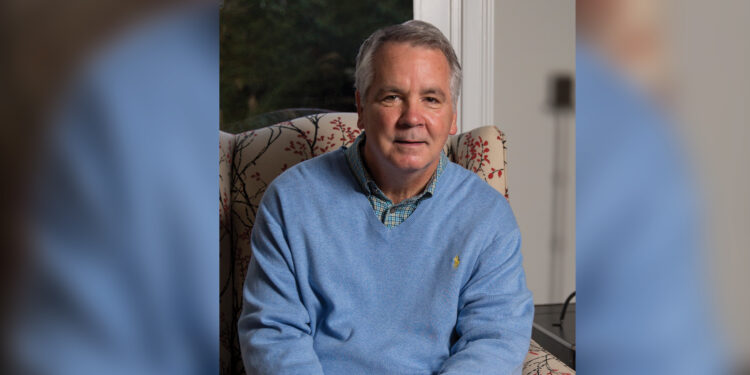and His Lifetime of Service
Photo by Jamie Alexander
In late February, Owensboro lost a public service icon, Rodney Berry.
Following a brief time at a news station in Evansville, Indiana, after graduating from Western Kentucky University, Rodney returned to Owensboro to begin his life in public service as the first director of Downtown Owensboro, Inc.
His son, Joe, said that his father’s desire to work in his hometown stemmed from a strong sense of responsibility that Rodney learned from his parents to leave the world better than he found it.
“He spent some time in the private sector and could have had success, but it wasn’t fulfilling for him,” Joe said.
During his early years in Owensboro, Rodney became friends with another up-and-coming Owensboro community leader that was heading the Chamber of Commerce at the time, named Dave Adkisson. In 1987, Adkisson was elected the youngest mayor of Owensboro and served two terms. Rodney managed both of his mayoral races.
In 1992, Rodney served as the first executive director of the RiverPark Center when it opened, but spent the four years prior as the project manager for the performing arts center, which included the design and fundraising for what is now an Owensboro institution.
Rodney left the RiverPark Center in 2000 to become the executive director at the Public Life Foundation of Owensboro, an organization that fosters civic engagement on local issues. The foundation was created in 1996 by John and Marjorie Hager to encourage public conversation on issues that are important to the community.
The foundation held forums in 2007 and 2011 called “We the People.” These forums, guided by Rodney, were influential in helping the downtown development, including hotels, convention center and the downtown riverfront expansion.
Joe said that while revitalizing the downtown was something that came out of the forums, his father’s greatest achievement would be the forums themselves, where 1,100 people from the city and county held in-depth, civil discussions about where they saw Owensboro’s growth. Joe also noted that many public officials still point to these meetings as primary drivers for the work both the city and county put into downtown development and the civic engagement that resulted from it.
Later serving as President of the Public Life Foundation of Owensboro, Rodney also served as the editor of the “Public Life Advocate,” the foundation’s publication that focused on public issues.
In 2018, the Children’s Art Fund was created at the RiverPark Center in honor of Rodney. The fund provides resources and funding for children based on need. At the ceremony where the fund was unveiled, Joe told the crowd that his dad was proud of the RiverPark’s programming for the community’s youth.
For most of Rodney’s career, he wrote briefs that were used in town hall meetings and community forums. His love of writing led him to wonder if he could expand his writing to the genre of fiction, and in 2019, after almost 15 years of writing, he published his novel set during the Vietnam War, “Holding on to Hope.”
Rodney used a weekend bonding retreat with his fraternity brothers to find the theme of his novel.
In a previous interview, Rodney said the book is not just about the Vietnam War, but centers on a group of college students who learn their school’s former basketball star is missing in action.
“It is about the bonding, our capacity to change, to grow beyond what we think we could ever accomplish, but in most cases, how we fall short,” Rodney said.
Following in his father’s footsteps, Joe was appointed executive director of the Public Life Foundation of Owensboro in 2021. Joe said the foundation has shifted its focus to children and early childhood education in Daviess County.
As a sixth-generation Owensboro resident, Joe said his commitment to community service and his career path have stemmed from learning from his father.
“He was a quiet, calm and gentle leader; he led by listening,” Joe said. “It’s important to try to do the best you can to impact others, and there’s a lot to be said for doing the right thing and doing what’s important and not looking for recognition,” Joe said.
“It was always the work…the impact that matters,” Joe said.










